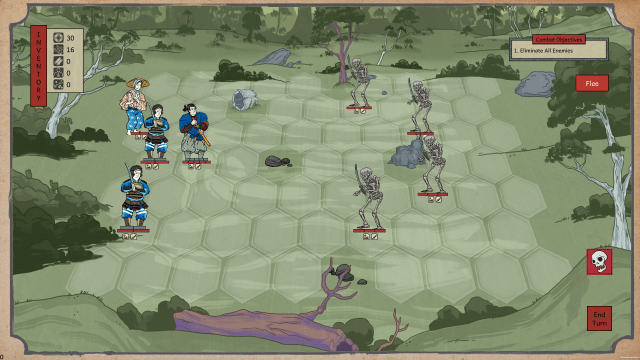2019: No Time To Play
This year we are hosting a variety of looks back at 2019 as hosts and friends-of-the-show offer up the things that defined the year for them. Today we have our other co-host, Andrew Asplund, looking at the 2019 that was (to him).
For all intents and purposes, 2019 was a big year for all things nerdy and geeky. There were big movies, big video games, big TV shows, and big just about everything. When I looked back on the year, something stood out to me and it is encapsulated pretty well by my experience at PAX West back in September: despite being at one of the biggest game conventions in the United States, my notable memory from that event was my experience at the nearby parallel event, the Seattle Indies Expo.
What I realized was that 2019 became the year in which I began actively seeking out small studio and independent video game titles in lieu of more standard, big studio content. This isn’t mean to suggest that I never really played indie games before or that I entirely eschew big studio content. It’s more that my overall preference (at least with respect to video games) has changed enough that I noticed.
The (AAA) World Is Not Enough
It is important to begin this retrospective on 2019 with where it started: in January 2019, I was still excited to see where Bethesda Game Studios intended to go with their … uhhh, masterpiece… Fallout 76. But, shortly thereafter, I fell into the sublime oceans of Unknown Worlds’ Subnautica. Two months later, I discovered Hello Games’ No Man’s Sky. As the year went on, other small studio and indie titles made their way into my hands. It’s not that I stopped playing other games: July saw me finally pick up Capcom’s remake of Resident Evil 2 and in August, I spent a little bit of time with EA’s The Sims 4. And, to be honest, I still managed to find time to play some of the Bethesada Game Studios “classics,” which is to say Fallout 4 and Skyrim. But, by the time PAX West came to town, it felt like I couldn’t even be bothered to look at the big studio content.

Now, don’t get me wrong: I don’t write this to dismiss or deny the value of a well done AAA publisher title. Just a month or so ago, I was talking about my experience playing Hideo Kojima’s … masterpiece? … Death Stranding. I also spent time with FarCry Primal, a game I still consider one of the only pre-historic RPGs on the market.
Exceptions aside, it’s hard not to see the AAA video game market as a testament to … playing it safe. It’s a place where companies are willing to spend millions (or tens of millions) of dollars on a game title, which means their willingness to deviate from the standard of “what works” is minimal, to say the least.
From Indies With Love
In contrast, my interest in indie content, whether it be small studios of one or two developers or larger “triple-I” studios, has increased significantly. This year, I have dedicated seemingly countless hours to playing indie games. And, to an extent, I feel like that’s what has come to define my memory of 2019, at least insomuch as it relates to nerdy and geeky content.

It’s not that I’m on some adventure to play especially bizarre video games. I’m far from somebody who is looking for video games that are #hashtag #edgy. As important and envelope-pushing as a game like Lucas Pope’s Papers, Please is, it’s not the kind of game I want to spend hundreds or even tens of hours playing. But, there’s something about a lot of these indie titles that I engage with. So often, these are games that a small group of people put a lot of work and feeling into. Not to say that big budget AAA games don’t have work and feeling. It just resonates with me that indie titles feel more less like a million dollar dog-pile and more like something that I could do with my friends.
It helps that 2019 was also the year that I completed a certificate in web development. What I originally started as something that might help me build a cool cooking website turned into something else entirely. An in-class assignment putting together a basic adventure game opened my eyes to the web as a tool for delivering game content; this eventually took me down a path of extremely amateurish game development. I started to really relate to the … allure of indie game development.

Perhaps, for all intents and purposes, that’s why the Seattle Indies Expo became such a benchmark for my 2019 and a reflection of something that had been going on for me since the year began. Getting to actually meet the developers of games like Wildfire Swap, The Wind and Wilting Blossom, or Monster Jaunt really gave it all perspective. Maybe it’s just a little dose of childhood fantasy given perspective. As a young person I always dreamt of making games “when I grow up.” In a sense, 2019 was the year that I finally remembered that.
In the end, my look back on 2019 is a personal one. I have been playing a lot more indie games than I used to. I have started following more indie developers on Twitter and other social media. Honestly, I’m just trying to pay more attention to all of the creative people out there making their mark on gaming. And, as we move into 2020, I hope to start getting more involved in those communities as well.










